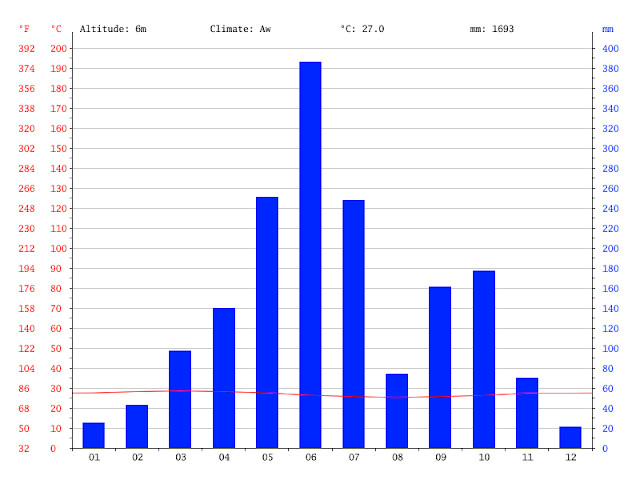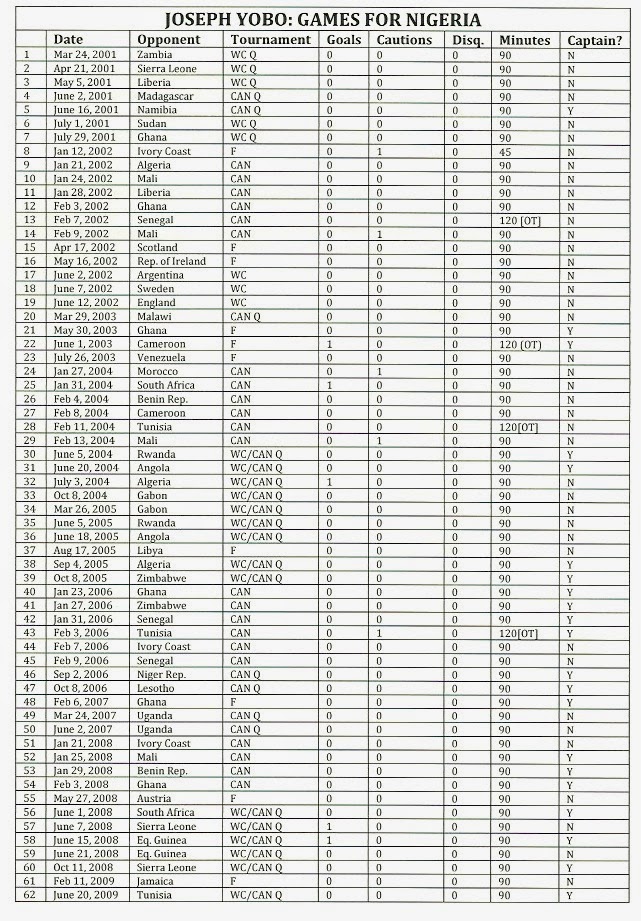Was Pinnick's Vote for Ahmad a Nigerian Benefit?
Just a few days ago, the new CAF President, Ahmad Ahmad, began to publicly outline his agenda for his tenure as President. Ahmad's victory over the aged Issa Hayatou was widely celebrated as victory for change and progress and Nigeria's Amaju Pinnick was received as a hero upon his return home and showered with congratulatory messages. From the agenda that Ahmad has outlined, thus far, it provides us with the picture to evaluate whether the vote Nigeria's Amaju Pinnick cast in Ahmad's favor benefits Nigeria or not?
First, let us outline Ahmad's plans as reported in the media before evaluating them in terms of how they may serve Nigeria's interest. Here are items in Ahmad's stated agenda:
1. Change the cycle of the African Cup of Nations (AFCON) from two to four years.
2. Change the timing of the Africa Cup of Nations from January-February to June-July.
3. Increase number of participating countries in the African Cup of Nations from 16 to 24.
4. Regionalize the qualification system to the finals of the African Cup of Nations as well as other continental competitions.
5. Regionalize the award of hosting rights to continental competitions.
Clearly, the above measures signal two ideological positions that Ahmad represents. The first is a position that is Eurocentric and the second is a Regionalized African position. It is obvious the source and support for both positions come from power-brokers (FIFA and COSAFA) who made Ahmad's election possible. Pinnick, who voted along, must answer whether Ahmad's position benefits Nigeria. Of course, Pinnick could possibly argue that Nigeria's benefit is not necessarily the election of Ahmad but Amaju's own election to the CAF Executive Committee. However, make no mistake about it both are linked because the coalition that elected Ahmad assured election of coalition members to the Executive Committee and, thus, one cannot be separated from the other. We analyze, below, the five items found on Ahmad's agenda.
There is increasing demand for changing the AFCON from a two-year to a four-year cycle. The source of this demand is to solely mirror the cycle of continental competitions elsewhere. In essence, it is not a demand based on peculiarities of Africa. Sometimes, it is linked to the timing issue discussed in the next section. But should the cycle be linked to timing? One would argue that it should not. If AFCON is moved to June-July when the European season is on break, why should it the matter that AFCON is a two, three, or four-year cycled tournament? To continue to do so exposes an overriding Eurocentric view.
One would think that de-linking the cycle from the timing issue, should allow a focus on the important issue of African peculiarity. What is this African peculiarity? It is the issue of funding for African competitions. The AFCON remains the cash cow for African football. Without it, the rest of African competitions will likely go with very little sponsorship. Thus, by moving the competition from a two to four-year cycle threatens not only the funding cycle but also the amount of funds available to support the game. This is based on the theory that increased frequency of competition correlates with increased funding. However, seeking additional funding through additional sponsors or increasing amount of current sponsorship should ameliorate this problem. Unfortunately, Mr. Ahmad has spoken very little about this option.
How does this impact Nigeria? The NFF continues to struggle to find funds for its programs and some of that funding comes from CAF, which depends on AFCON earnings to generate funds that are disbursed to federations like the NFF. If the Ahmad regime fails to attract additional funding, while losing amount of funding because of the change of AFCON cycle, that could mean that the NFF will have less funds coming from CAF.
The AFCON Timing
The change in AFCON timing could be argued as a benefit to Nigeria if one solely focuses on availability of foreign-based players for the competition. However, it must be noted that Nigeria has rarely experienced a problem securing the release of its foreign-based players for the competition, which falls under the FIFA international tournament calendar. Some players may have been adversely affected upon return to their clubs following each AFCON. Adversity may result in loss of starting positions at the club level. Changing the cycle to mirror the European calendar would mean that African players leave foreign clubs to play for their national teams when players from other continents also leave to play for national teams. Thus, it would become difficult for foreign-clubs to discriminately punish African players in such changed circumstance.
However, there are other issues at play beyond availability and comfortability of European-based players. Unlike much of Europe and elsewhere, much of Africa (West, Central, and East) faces heavy rains during the June-July months and these could adversely affect a tournament scheduled during such months (See Figures 1 and 2). One-off games (such as in leagues) are played in those months but those can be more easily postponed than games in a tightly-scheduled tournament. Thus, the timing for Nigeria as a host nation is not conducive.
Figure 1: Amount of Rainfall/Month in Lagos, Nigeria
Figure 2: Could this be an AFCON hosting scene for Nigeria?
Increased Number of AFCON Participants
This is a win-win for all countries, including Nigeria. For Nigeria, in particular, this should mean better odds (But read the regionalizing issues below) better odds of participating in the AFCON and additional funds from CAF. This is important when one considers that Nigeria has missed three of the last AFCONs.
With expanded number of participants, Nigeria should (theoretically) have an easier path to the AFCON than in previous years. Think about this, 24 participants means that just about one of every two African countries will get to the finals! (24 out of 54 member countries).
Moreover, with increased number of participants there are fewer African countries that have facilities to host an AFCON except in a case where CAF supports dual hosting. Among those few countries is Nigeria. Nigeria will not need to build new stadia, it already has more than enough to host such a competition. It already has suitable stadia in Lagos, Kaduna, Uyo, Enugu, Calabar, Port Harcourt, Ibadan, and Abuja. Only minor work, especially on the playing surfaces, is needed in some of the stadia.
Regionalized Qualification System
Ahmad has muted the idea that all CAF competitions would utilize the regional qualification system. This system is currently used for election of CAF officials and qualification for the home-based national team cup (CHAN). The system assures that all CAF regions are represented in the finals of an African competition. Currently, West Africa dominates representation in African national team competitions with only North Africa providing serious challenge but that is without the system. Ahmad was supported by COSAFA, Southern Africa region, which has found it difficult to qualify for the final of these competitions. The use of the system, which solves COSAFA's qualification problems justifies Ahmad's move to regionalization.
However, does this support Nigeria's interest? No, it does not. Though the West Africa region is divided into two (i.e. A & B zones), Nigeria is in Zone B along with very competitive teams of Ghana, Ivory Coast, Burkina Faso, and Togo! Four of these teams are currently among the top 10 teams in Africa. In Zone A, you have three teams in Africa's top 15 (Senegal, Mali, and Guinea). If regionalization is used in today's 16-team tournament, Nigeria would battle for just three spots against three other Top 10 African teams! Meanwhile, COSAFA has three spots for teams that have only South Africa (No. 12) in the Top 20 in Africa! That is the politics of regionalization.
In any case, a 24-team tournament (discussed above) may solve the problem, at least from Nigeria's point of view. However, it is clear that Ahmad's move towards regionalization does not benefit Nigeria. Nigeria loses on that point.
Regionalized Hosting System
Regionalization of hosting rights clearly provides more opportunity to the Southern and Eastern zones and not to West African and North African zones that have often hosted major African tournaments. From Nigeria's viewpoint, this should not matter as it has the ability to win away from home and has done so two of the three times that it won the AFCON. Moreover, if the tournament increases to 24 teams, Nigeria (regardless of region) will be one of few African nations able to host such a large event based on availability of current facilities, except if CAF moves to the option of dual hosting which it has done at least two times in the past.
Conclusion
Essentially, as Ahmad unveils his plans as CAF's President it is becoming clear that his position is not beneficial to Nigeria and if anything it is detrimental even though Nigeria has the ability to overcome some of the issues. Pinnick's support for Ahmad clearly is not to Nigeria's benefit from the point of CAF's Presidency but it does have a silver lining. That silver lining is in the election of Pinnick to the CAF Executive Committee. At least, Nigeria will have a voice at the seat of decision making. However, it is how Pinnick uses that power that will matter. Will he use it for selfish reasons or will he use it to protect Nigeria's interests? That is the question going forward.




Comments
Post a Comment